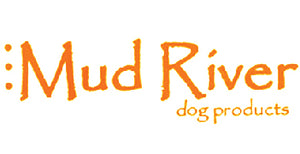Stem Cell Therapy for Orthopedic Injuries
First, let's clarify: General obesity will NOT heal your pet's orthopedic injury. In fact, overweight pets suffer unnecessarily from increased wear-and-tear on joints, causing other potential injuries. When a dog is dealing with an orthopedic injury or a joint injury, it might be worth looking to support the dog to try and reduce some of the pain that these injuries may be causing. For the majority of the day, most days will be lying down. Due to this, it's important to find them a comfortable and supportive bed. Whilst obesity in dogs isn't ideal, the fat tissue is a great source for stem cell harvest and it only requires a small amount. Stem cells may be utilized to heal many common ailments in your pet, including orthopedic injuries and osteoarthritis. Using the body's own tissue as a way to heal itself is a type of regenerative medicine.
Stem cell therapy offers an alternative or adjunctive treatment option to orthopedic surgery for tendon and ligament injuries, bone and cartilage damage, and muscle injuries. Cats, dogs and horses have all seen favorable outcomes with stem cell therapy. This type of treatment offers the potential for working and sporting dogs, as well as arthritic senior dogs, to return to previous activity levels. Harvest of stem cells can occur from two common locations: bone marrow or fat tissue. In dogs, fat is the least invasive tissue type to harvest. Once harvested, tissue requires processing prior to use in order to isolate and activate the cells.
This process involves the use of specially designed scientific equipment. For example, there are different shaking incubators that can be used for these purposes. Processed cells are then infused back into the pet either at a specific injury location or through an IV line.
Stem cell therapy has been a topic of interest in both human and animal research for quite some time. Stem cells are unique cells in the body with an ability to differentiate into a variety of cell types to serve a needed function or purpose. This means building of new tissues or repairing those that have been previously damaged. Stem cell therapy has the potential to alter the body in many unique ways, making their use both majestic and potentially dangerous. Accurate diagnosis is essential prior to any stem cell treatments. Unfortunately, cost can be a limiting factor for stem cell therapy.
Some new pet owners may consider fat tissue harvest for long term storage during a routine spay/neuter appointment. Other regenerative medicine techniques or treatments (including platelet-rich plasma infusions) may also be utilized along side stem cell therapy depending on the type and severity of the injury being treated. Orthopedic rehabilitation therapy is also highly recommended for optimal outcome in most patients. While results of stem cell and regenerative medicine cannot be guaranteed, the potential for future uses and for injured pets to regain quality of life makes the advances in this type of medicine very promising; it has the potential to be utilized in other acute and chronic conditions like allergies, diabetes, heart failure, kidney failure, inflammatory bowel disease, severe infections, and autoimmune diseases. Research is still in the works for this type of use but it offers a hopeful option in treatment of some difficult to manage diseases.
Only properly trained veterinary teams should perform stem cell therapy procedures. Generic or over-the-counter sales of stem cell therapy are not legitimate products. Only qualified laboratories should perform stem cell processing and long term storage.
This helps ensure quality and safety of the product. If interested in stem cell therapy please discuss this option with your veterinarian to see if you pet is a candidate. Note: Pets with cancer are not candidates for stem cell therapy at this time, as stem cells may cause increased growth or spread of cancers.
### Amanda Burow, D.V.M. (Dr. B), is a graduate of Iowa State University's College of Veterinary Medicine. Dr. Burow's patient list includes hunting dogs of all varieties, as well as several field trial dogs and full time sporting guide dogs. In addition to practicing general veterinary medicine, she has special interest in the areas of preventive care, emergency medicine, and dermatology. In her spare time, she enjoys being outdoors and on the lake, staying active, reading, and spending time with family and friends. Mud River is proud to share these tips from Dr. B with our customers. Keep in mind it is best to work with your local veterinarian to determine the needs for your animals.










